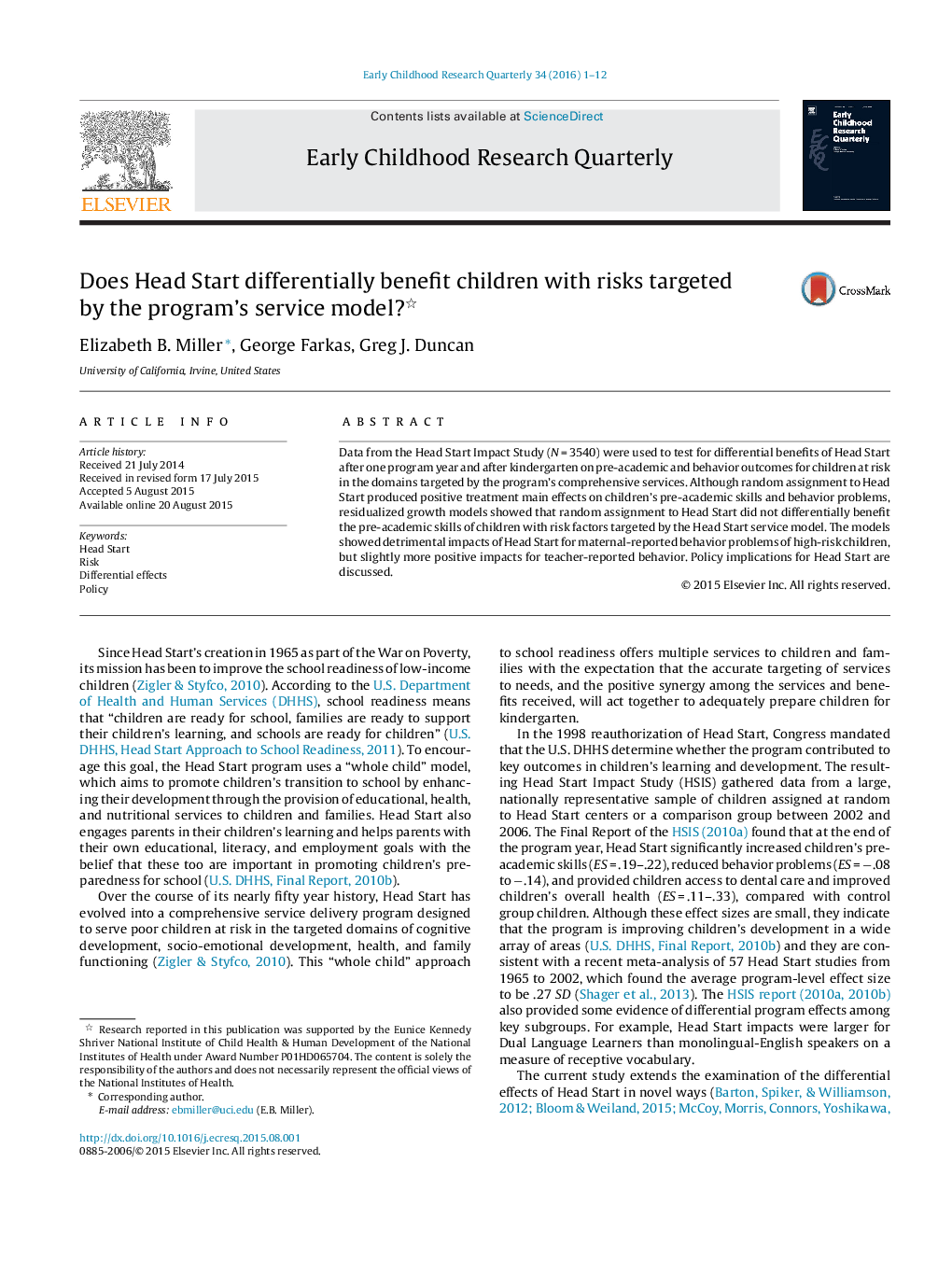| Article ID | Journal | Published Year | Pages | File Type |
|---|---|---|---|---|
| 353728 | Early Childhood Research Quarterly | 2016 | 12 Pages |
•We create a risk index comprised of items Head Start specifically targets.•We test for interactions between this risk index and assignment to Head Start.•Head Start did not differentially benefit high-risk children's pre-academic skills.•Differential effects on high-risk children's behavior varied by the respondent.•Interactions were detrimental for maternal-report, but positive for teacher-report.
Data from the Head Start Impact Study (N = 3540) were used to test for differential benefits of Head Start after one program year and after kindergarten on pre-academic and behavior outcomes for children at risk in the domains targeted by the program's comprehensive services. Although random assignment to Head Start produced positive treatment main effects on children's pre-academic skills and behavior problems, residualized growth models showed that random assignment to Head Start did not differentially benefit the pre-academic skills of children with risk factors targeted by the Head Start service model. The models showed detrimental impacts of Head Start for maternal-reported behavior problems of high-risk children, but slightly more positive impacts for teacher-reported behavior. Policy implications for Head Start are discussed.
